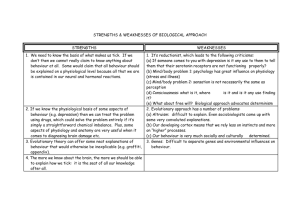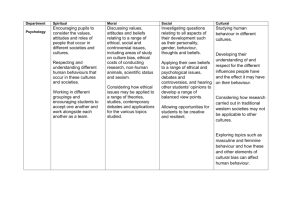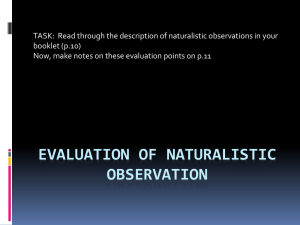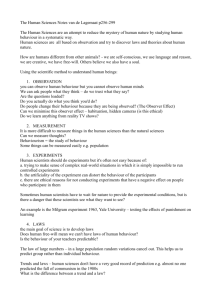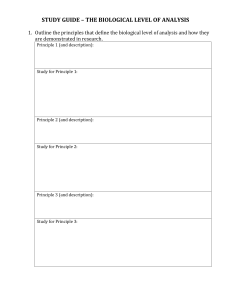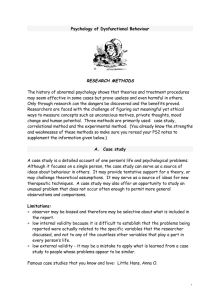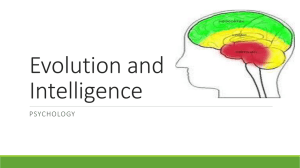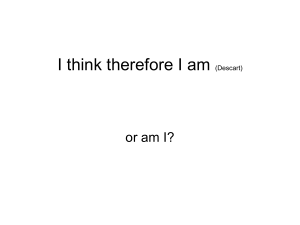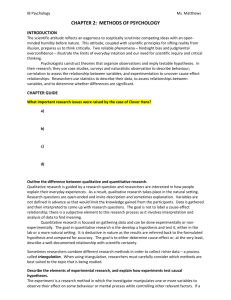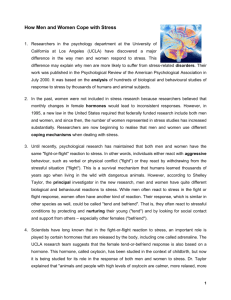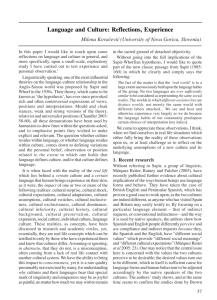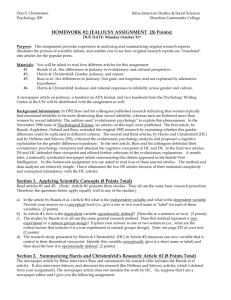METHODOLOGY USED BY EVOLUTIONARY APPROACH
advertisement
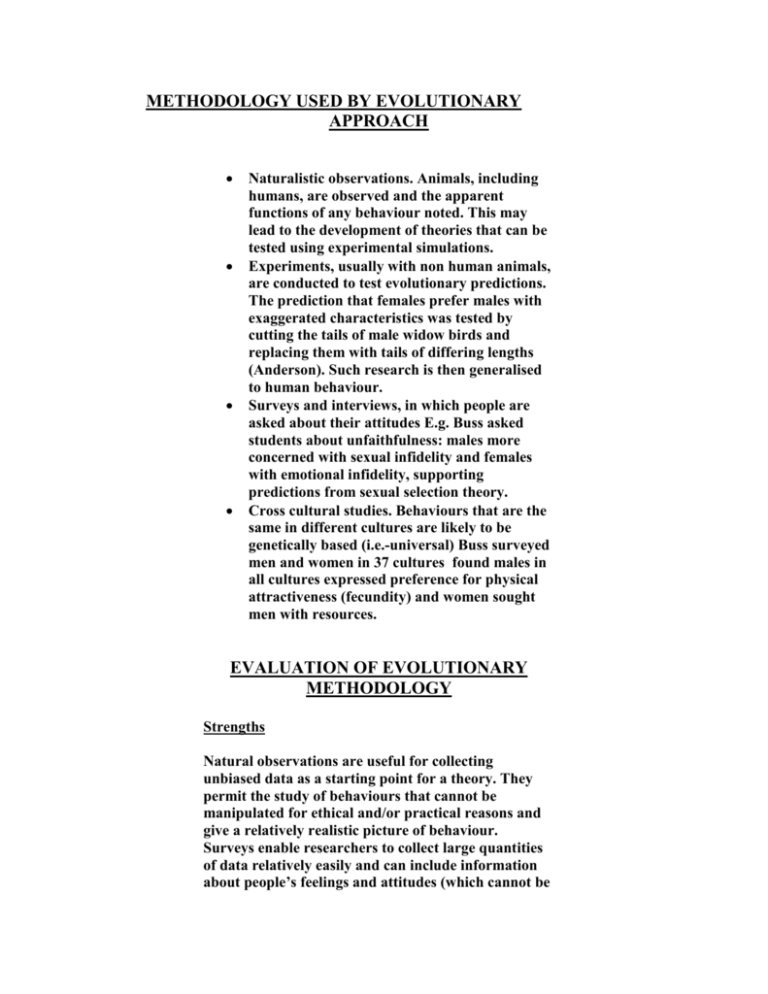
METHODOLOGY USED BY EVOLUTIONARY APPROACH Naturalistic observations. Animals, including humans, are observed and the apparent functions of any behaviour noted. This may lead to the development of theories that can be tested using experimental simulations. Experiments, usually with non human animals, are conducted to test evolutionary predictions. The prediction that females prefer males with exaggerated characteristics was tested by cutting the tails of male widow birds and replacing them with tails of differing lengths (Anderson). Such research is then generalised to human behaviour. Surveys and interviews, in which people are asked about their attitudes E.g. Buss asked students about unfaithfulness: males more concerned with sexual infidelity and females with emotional infidelity, supporting predictions from sexual selection theory. Cross cultural studies. Behaviours that are the same in different cultures are likely to be genetically based (i.e.-universal) Buss surveyed men and women in 37 cultures found males in all cultures expressed preference for physical attractiveness (fecundity) and women sought men with resources. EVALUATION OF EVOLUTIONARY METHODOLOGY Strengths Natural observations are useful for collecting unbiased data as a starting point for a theory. They permit the study of behaviours that cannot be manipulated for ethical and/or practical reasons and give a relatively realistic picture of behaviour. Surveys enable researchers to collect large quantities of data relatively easily and can include information about people’s feelings and attitudes (which cannot be deduced from observation or experimentation). They can produce both quantitative and qualitative data and rich information. Cross-cultural studies provide us with a less culturally biased view of human behaviour so are more likely to discover the ‘universals’ of human behaviour. Limitations Naturalistic observations do not produce information about cause and effect relationships and may be affected by observer bias (observers may see what they except to see). In some situations, the behaviour of participants (including animals) may be affected by knowing they are being observed; covert observations of humans raise ethical issues. Surveys may be affected by interviewer bias and/or social desirability bias. Interviewees may not understand the questions and may provide meaningless data. Cross cultural studies are often based on small samples that are presumed to represent that culture. People my be tested using measures developed by Western psychologists that have different meanings in another culture, thus invalidating the data. Western researchers may misunderstand indigenous participants, and vice versa, and the responses elicited may be affected by researchers’ expectations.
